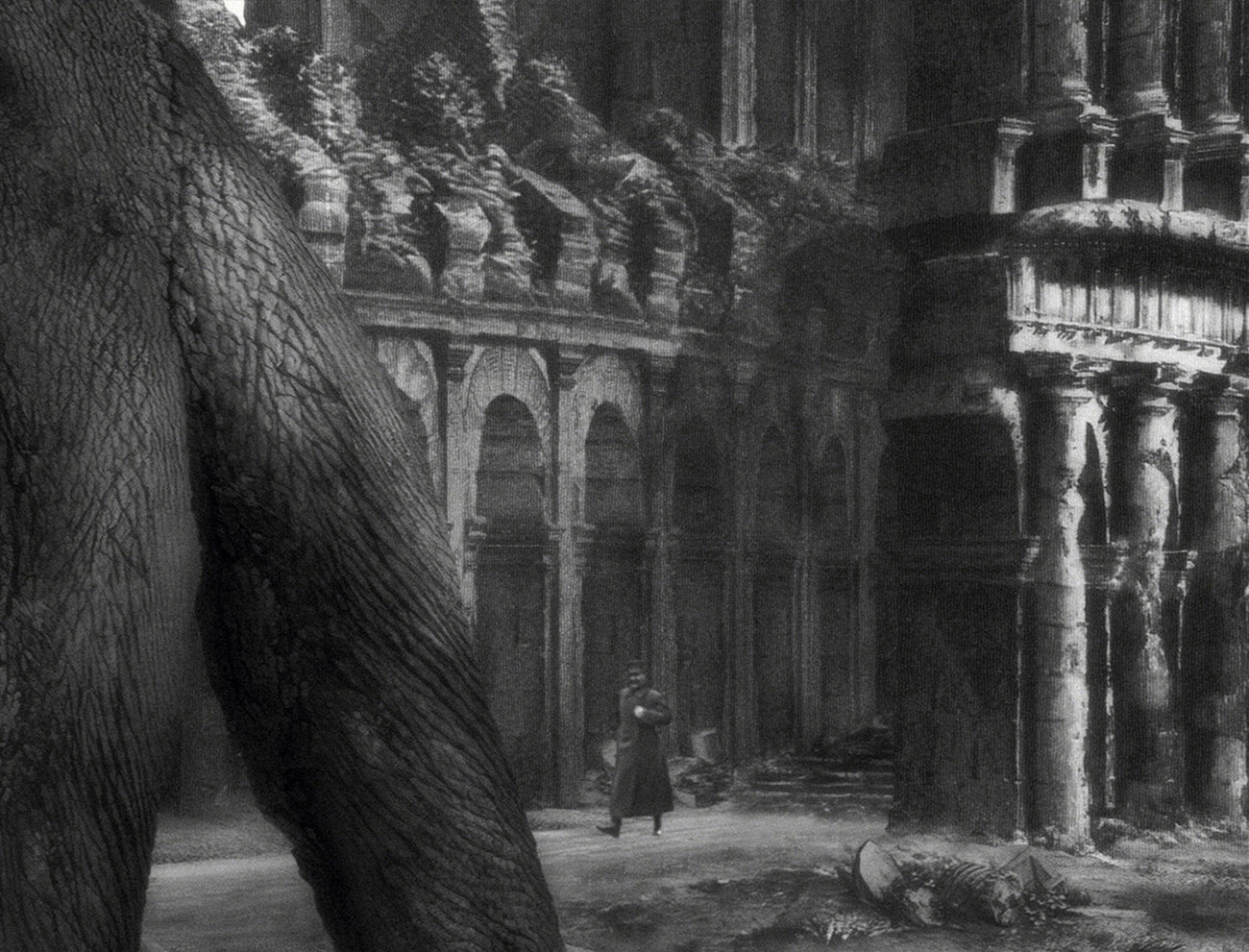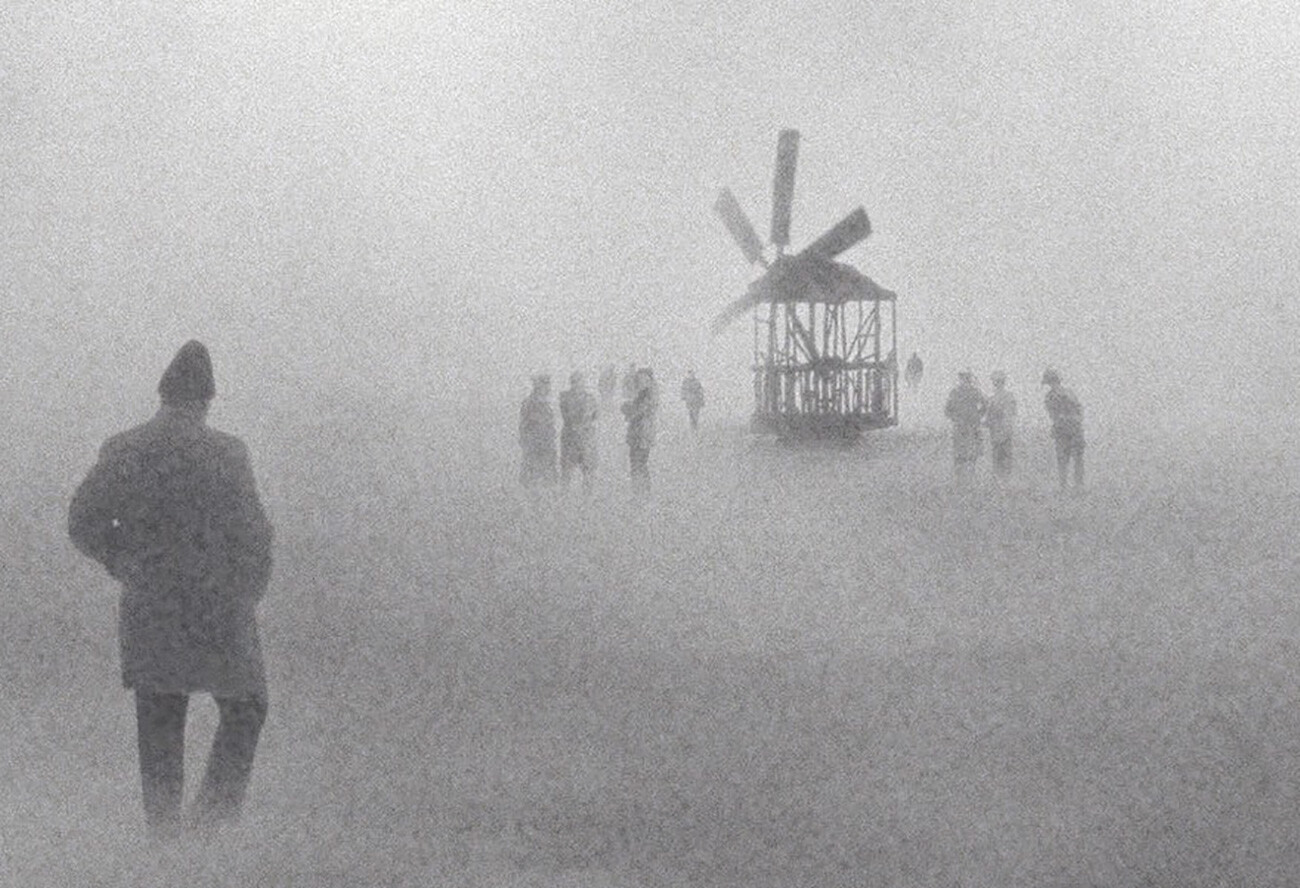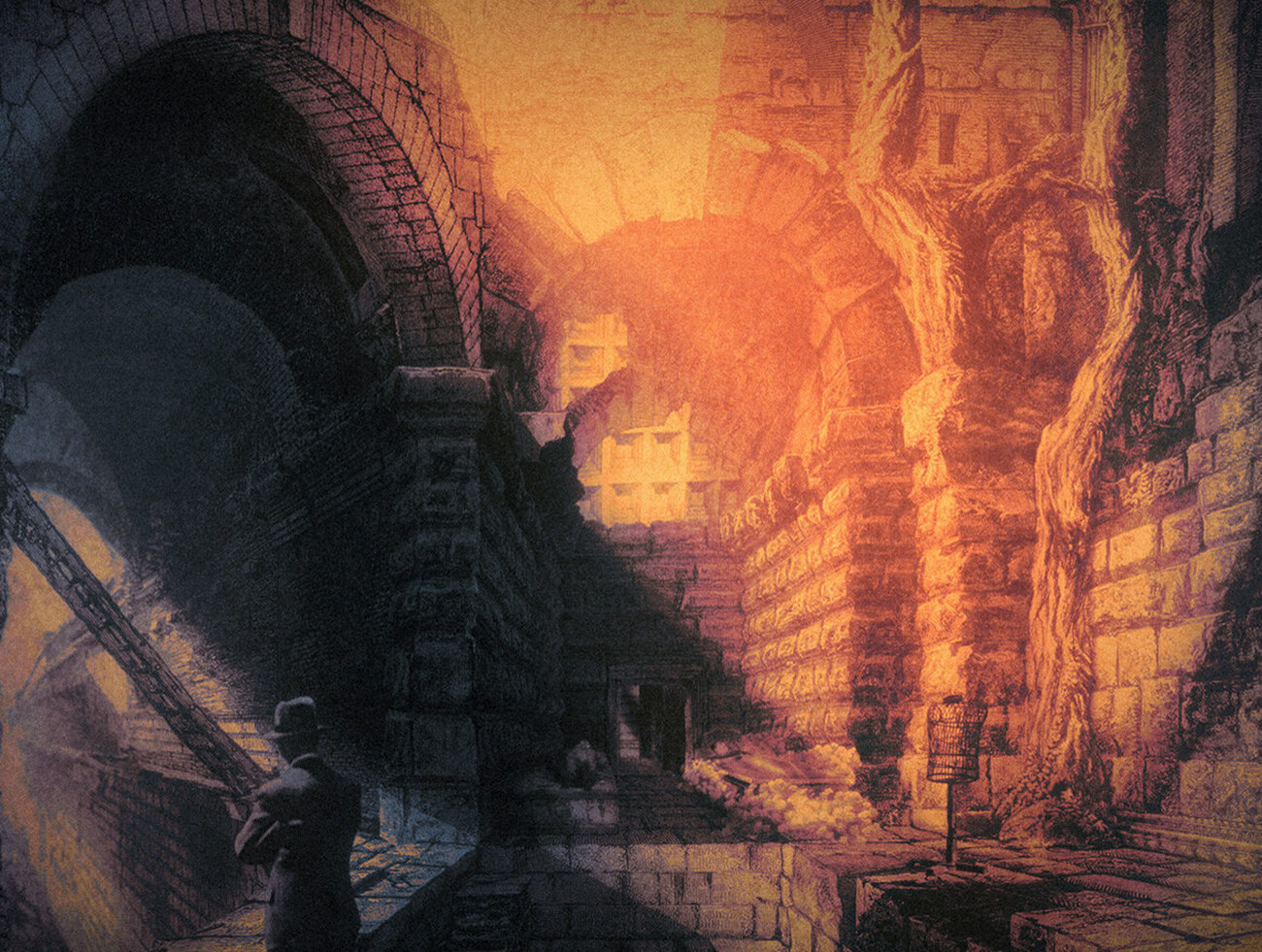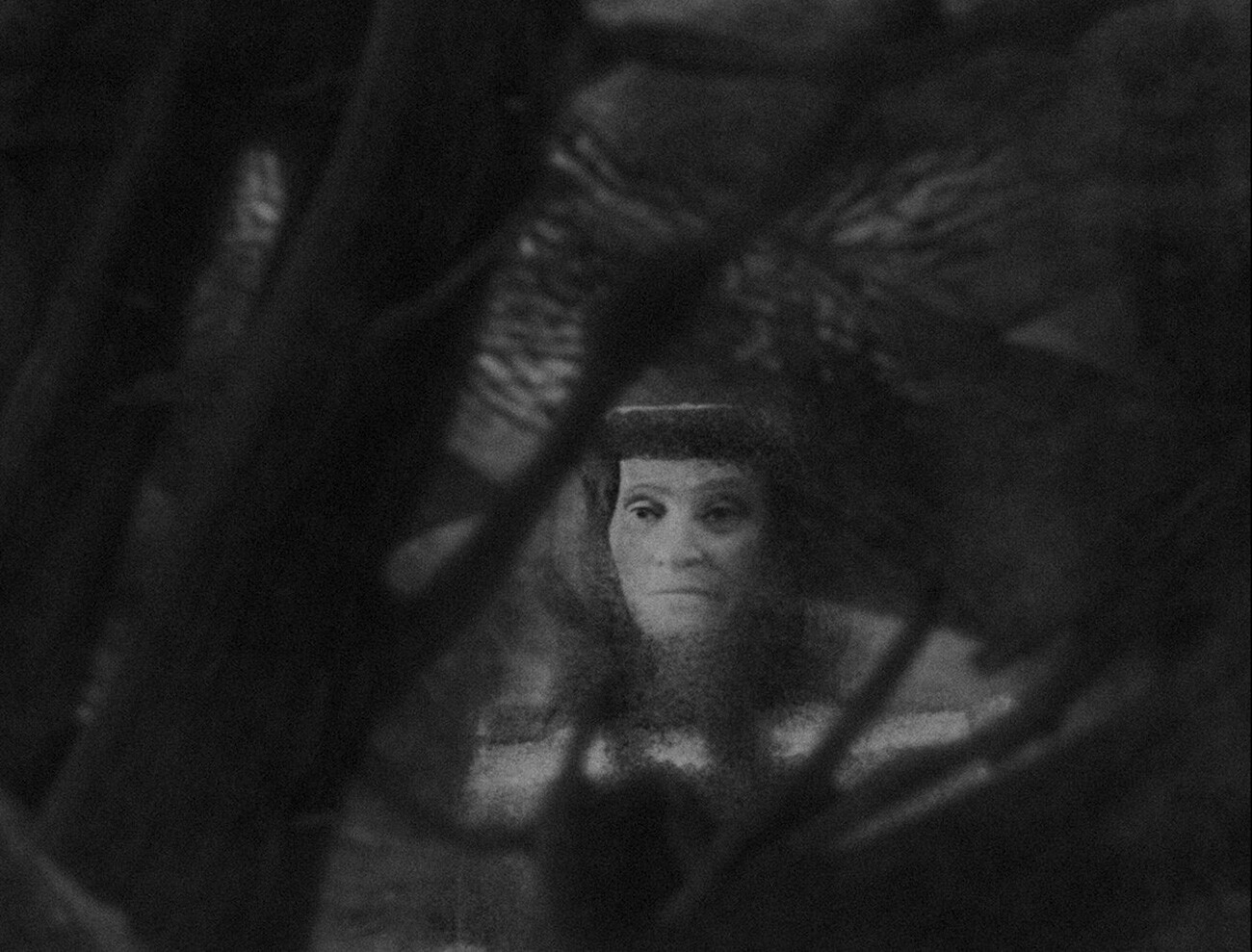

Among the characters are Hitler, Mussolini, Stalin, Churchill, Napoleon. Even Jesus Christ makes an appearance. The rulers meet in the afterlife and hold endless conversations, while waiting for the decision of the Higher Power – if the gates of Heaven will open before them or not. In their thoughts, they’re still on Earth – no one wants to rest, everyone dreams not of eternal rest, but of how to replay history in their own way.
This is the fifth part of a large-scale and resounding series by Sokurov – about the nature of power. First, it was a trilogy – ‘Moloch’ (1999) about Hitler, ‘Taurus’ (2001) about Lenin and ‘The Sun’ (2005) about Japanese Emperor Hirohito. In 2015, ‘Faust’ joined the trilogy, based on the tragedy by Goethe – the movie won the Golden Lion in Venice. Now, ‘Fairytale’ puts a finishing touch upon the director’s ruminations on how unlimited power can change a man.

A documentary chronicle is the foundation of the movie. According to the director, during his preparations, he watched all available recordings in global movie archives. How do the world leaders appear in the official chronicle? They stand at the rostrum, deliver speeches or slowly walk during various ceremonies. It would seem problematic to assemble something coherent and, most importantly, interesting from that material. But, Sokurov found an interesting way – with the help of modern computer technologies, he transferred global leaders to the afterlife, uniting them all in one camera shot. Their slow “walks” assumed a dramatic effect – they don’t just parade along, they are killing time, waiting for their fate to be decided.
‘Fairytale’ is far from being the first technological experiment in Sokurov’s career. His ‘Russian Ark’ is a unique example of a complex movie with a multitude of characters and a massive amount of extras, filmed in one shot within the Winter Palace – today, this former residence of Russian tsars houses the Hermitage museum.

We must separately note the artistic solution for the afterlife. The landscape is black-and-white – to match the color of the characters of the movie, taken out of documentary chronicles. Among obvious visual sources of inspiration are: Gustave Doré’s illustrations for Dante’s ‘Divine Comedy’, Roman engravings by architect Giovanni Battista Piranesi, as well as the painting ‘Isle of the Dead’ by Arnold Böcklin.

After such a beginning, one would expect a serious and grim tone. But, no – the movie has a lot of humor in it. The dialogues and monologues of its characters (everyone speaks their own language: Churchill speaks English, Napoleon speaks French, Stalin speaks Georgian and so on) are filled with quotes and references to their speeches during their lifetime. Many of what is said, due to the setting, sounds quite ironic.
For example, Churchill, irritated, reminds Stalin how the latter promised, yet never actually built a cognac factory in Britain – that’s a hint at a famous tale about how the Soviet leader treated the British prime minister to Armenian cognac during the Yalta Conference. Allegedly, it delighted Churchill. There are also direct meta jokes – at one moment, the characters remember Sokurov himself. They evidently didn’t like his previous movies about leaders all that much.
In one of the scenes, Hitler, saying “Stop spinning!”, blows up a windmill with a grenade. Someone among the characters immediately offers to call Miguel de Cervantes – for him to look at how one should battle windmills.

Unfortunately, Alexander Sokurov creates movies more and more rarely. His previous movie, ‘Francofonia’ (it premiered at a festival in Venice) was released in 2015. ‘Faust’ was released in 2011. Presenting his ‘Fairytale’ at the festival in Locarno, Sokurov recalled that it was there, at that festival, where his debut movie ‘The Lonely Voice of Man’ was shown in 1987 (back then, this movie was awarded the ‘Bronzen Leopard’). The director thought it was symbolic that ‘Fairytale’ also premiered in Locarno, which, he hinted, may be his last movie.
Dear readers,
Our website and social media accounts are under threat of being restricted or banned, due to the current circumstances. So, to keep up with our latest content, simply do the following:
If using any of Russia Beyond's content, partly or in full, always provide an active hyperlink to the original material.
Subscribe
to our newsletter!
Get the week's best stories straight to your inbox